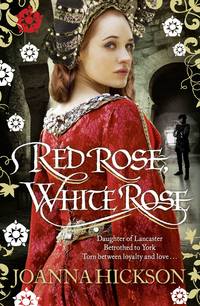
Полная версия
The Tudor Bride
‘And no one is to lay any blame at Joan’s door. It was entirely my idea and she was kind enough to make it possible for me that is all. I confess that the result of our adventure is a disappointment for myself, but Joan is a skilled and daring horsewoman and I, for one, am proud of her.’ She aimed a look of encouragement at her maid of honour and made a wobbly curtsey to the king. ‘Have I your permission to retire, my liege?’ She gave him a tremulous smile, which I swear no red-blooded man could have resisted and his sternness visibly melted under its beam.
‘I will come soon to see how you are faring,’ he said, his eyes still anxious.
On closer inspection, I found Catherine’s injuries to be just as she had claimed; bruises, both of body and pride, exacerbated by a few sharp twinges in her back. However, I noticed that she had become alarmingly pale and encouraged her to return to bed. She did not need much persuading. Uneasily I wondered if there might be more to her pallor than simply the after-effects of hitting the ground at speed. The bed was still rumpled from when she had abandoned it before dawn and, as I pulled the bedclothes straight ready for her to climb in, I posed the question foremost in my mind.
‘You have not asked me for a napkin lately, Mademoiselle,’ I remarked, crossing my fingers among the sheets. ‘Should I be drawing any conclusions from this?’
There was a pause. ‘Perhaps,’ she admitted in a very small voice. ‘To be honest, Mette, I do not dare to look.’
I felt my stomach lurch. Dressing herself for her clandestine excursion, she had only managed to pull a woollen kirtle and her fur-lined heuque over her chemise and so far I had only removed the heuque.
‘Do you mean you might be pregnant?’ I gulped, instinctively crossing myself.
Catherine nodded, tears beginning to trickle down her cheeks. ‘Or I may have been – before I fell off the horse. I realise now I have been very stupid, Mette. I was angry yesterday, the men were being so … so male! I wanted to show them that we women are just as spirited as they are; not difficult and “hard to handle”, as they put it.’
Her white face worried me, but I thought it a good sign that she had made no mention of stomach pains and, when I removed her kirtle, I was heartily relieved to find an unblemished chemise beneath. ‘All is well,’ I declared gratefully, ‘so far anyway.’ I had to tell her because she had covered her own eyes for fear of what mine might see.
‘Are you sure, Mette?’ she asked, dropping her hands but still unable to allow herself to believe it. ‘I confess that I have a pain in my back and I feared the worst.’
‘Then you must rest immediately, Mademoiselle,’ I said briskly, dumping the kirtle and moving to pull back the bedclothes. ‘You must keep your feet up for a day and more, until we know if there is definitely to be a child.’ I forced a consoling smile, although I was suddenly very angry with her. She and King Henry had prayed for an heir at every shrine on their progress through the country and yet with one foolhardy action she had risked destroying any new life that might be growing inside her. I now pondered whether I should immediately inform King Henry of the situation.
In the event it was a decision I did not have to make because the king arrived almost as soon as Catherine was between the sheets and once he had satisfied himself about her general condition he asked a very direct question.
‘It is nearly six weeks since we came together at Kenilworth, Catherine, and I have not been kept from your bed by any female effusions. Is it possible that you are pregnant?’
When Catherine confessed that it was possible, he was torn between praise and reproach, elated and exasperated at the same time.
‘I do not know what to say,’ he admitted, somehow managing to smile and frown at the same time. ‘Glory be to God it is wonderful news! But we must pray that no damage has been done by your impulsive action today. I want you to promise that you will take the greatest possible care from now on. I cannot believe that you have risked the safety of our son and heir.’
His pacing brought him to the bedside where he gazed down at her with stern admonition. ‘I have been forgetting that you have still not reached your majority and possess all the headstrong recklessness of youth. To a certain extent, I blame myself for the danger in which you have placed our son, but it must never happen again. I want to be sure you understand that. I need to know if I can trust you, Catherine,’ he added earnestly.
‘I promise to take more care in future, my liege,’ she said solemnly, ‘but I stress that I am not yet certain that I am with child. I beg you to wait before making any announcement. Remember what happened last time.’ She reached out and took his hand, pressing it fervently to her lips. ‘And I beg you to remember, my dearest lord, that any child we have might just as easily be a girl as a boy.’
King Henry gave her a pitying look. ‘Believe me, madam, there is no question of this baby being a girl. God has promised me an heir and I have fulfilled all His requirements to deserve one. You must not harbour another thought that our first child could be female for that will weaken our son’s strength and sense of purpose. Never forget that you are carrying a king, Catherine. We are building a dynasty, you and I.’
His messianic expression brooked no denial and Catherine subsided into the pillows, her face paler than ever. I hastened to intervene, moving forward from the shadows.
‘Forgive me your grace, but the queen has had a bad shock and needs to rest quietly,’ I said hesitantly, anxious not to stir his wrath further.
To my relief he nodded and bent to stroke his wife’s brow in tender farewell. ‘Yes, rest, Catherine. I will send to hear how you are this afternoon. Take care of our son.’ He stepped away from the bed and beckoned me to approach him. ‘Keep a close watch on her, Mette. This time there must be no mistakes.’
A sudden late snow storm laid a slippery cover over the ground and the tournament in celebration of St George had to be postponed once again. The conditions also delayed the arrival at Windsor of the Duchess of Hainault. She and the Duke of Gloucester were forced to wait out the storm at Eltham palace.
‘This weather might well make Duchess Jacqueline regret her decision to come to England,’ Catherine remarked wistfully, trapped indoors with her ladies embroidering an altar cloth when she would have preferred to be playing bowls in the palace gardens. ‘There will be blossom in the orchards at the Hôtel de St Pol by now. Do you not sometimes long for France, Mette?’
Since I was doing my best to repair a delicate Valenciennes lace trimming on one of her gowns and wishing I had my daughter Alys’s skill with the needle, her question brought a sudden tear to my eye. ‘Oh yes indeed, Mademoiselle, quite often; especially when something reminds me of Alys and little Catrine.’
A meaningful glance passed between us at the mention of my infant granddaughter. There had been no announcement of Catherine’s pregnancy yet, but with every passing day we became more certain that there was a child on the way. What I now recognised as King Henry’s rather calculated romancing of his young bride at Kenilworth had reaped its reward and those passionate days spent in the Pleasance had born fruit. If all went well England would have its heir by Christmas.
‘If it is a boy, of course,’ Catherine reminded me tartly when I mentioned this calculation in private. She was smarting from the king’s abrupt abandonment of her bed the moment he thought she was with child and also from his total denial of any prospect of it being a girl. Poor Catherine; she never quite knew where she was with her enigmatic husband. One day he was the charming lover, another the conquering hero and at present, unable to be either of these, he had transformed into God-fearing King Henry and was closeted with the clergy composing a new set of rules for English Benedictine monks, whom the Pope had accused of losing sight of their vows of work and prayer and, above all, of chastity. Catherine was discovering that she had married a chameleon.
‘But when the snow melts, suddenly spring will be here,’ said Lady Joan brightly. Perhaps as a result of her burgeoning romance with the Scottish king, the Beaufort girl was fast becoming the twinkling star of the queen’s troop of ladies, always ready with a cheerful remark or a distracting riddle. ‘The sun will shine and the flowers will bloom and the world will be a beautiful place.’
‘Oh thank you, Lady Goody Sugar-plum,’ I heard Joanna Coucy mutter. ‘And we can all kiss a May-frog and find he turns into a king.’
Coucy’s remark had not reached the ears of either Lady Joan or Catherine, but I shot her a fierce glare so she knew I had heard. I sighed and bent over the infuriating frill of torn lace, thinking that we could all do with some timely distraction.
We did not have long to wait.
9
As soon as the unseasonal blanket of snow had melted, the Duke of Gloucester rode into Windsor with the Duchess of Hainault and, to the surprise of Catherine and her ladies, her sole female attendant was none other than Eleanor Cobham.
The king and queen received Duchess Jacqueline with due ceremony in St George’s great hall and we all had a good look at her as she swept down the room on Gloucester’s arm, looking to my eyes nothing like a damsel in distress. She was tall and statuesque with milky skin and red-blonde hair dressed in plaited ‘horns’, capped with a headdress of exquisite wired Valenciennes lace. Seeing this and her magnificent and unsullied gown of dark-green broadcloth trimmed with sable, I concluded that she had prevailed upon Gloucester to make a halt somewhere in Windsor so that all evidence of the journey could be removed from her person. Jacqueline of Hainault knew the value of first impressions.
When the initial greetings were over, she was invited to take the place of honour beside the king at the high table and a splendid welcome feast was served. However controversial Jacqueline’s departure from mainland Europe may have been, it was made evident to all that she was an honoured guest at the English court.
During the meal Eleanor Cobham was seated among Catherine’s ladies at a lower trestle and we were able to quiz her about her new patron. ‘It was a complete surprise when his grace’s messenger arrived with the invitation to serve the duchess,’ she confessed coyly, ‘especially as my family had moved from Sterborough to Hever, so he was obliged to battle the blizzard to seek me out. Fortunately, Hever is only a day’s ride from Eltham.’
‘Goodness, did you ride there in the snow?’ enquired Lady Joan admiringly. ‘Even in daylight, it must have been a cold and slippery journey.’
‘A little cold,’ acknowledged Eleanor, ‘and of course we had nothing but saddlebags, so this is my only gown.’ She made a deprecatory gesture at her serviceable grey tunic and blue côte-hardie, serviceable for riding hard over snowy roads, but lacking any of the style and colour of court costume. ‘However, the duchess has promised me five marks to buy cloth for new gowns as soon as we are settled.’
‘Five marks!’ I echoed, impressed. ‘The duchess’s purse is well-lined. I thought she had been forced to flee Hainault with barely the clothes on her back.’
Eleanor frowned. ‘Yes, she did, it was a daring escape from all accounts. But she assures me she will receive funds from the king until such time as she regains her own treasury. I hope there are some good tailors about the court.’
‘The queen does not think so,’ Lady Joan remarked. ‘She is sending Madame Lanière to London as soon as the roads dry out, to recruit tailors and mercers. Is that not so, Madame?’
‘More or less,’ I admitted, although since my mission was quickly to acquire some looser gowns to accommodate Catherine’s soon-to-be-swelling belly, I could have done without it being generally known yet. ‘But if I can persuade a number of London craftsmen to come to Windsor, it will be some time before they arrive. Meanwhile, perhaps you may be able to borrow a gown. Several of the queen’s young ladies are more or less your size.’
Eleanor favoured me with an innocent-seeming smile, but I caught a calculating glint in those violet eyes of hers. ‘Or perhaps the queen herself has some old gowns she no longer wears?’ she suggested. ‘You would know that, would you not, Madame?’
I immediately had a vision of Eleanor preening herself in one of Catherine’s Parisian creations and revelling in the jealous glances of the queen’s own maids of honour. ‘I would,’ I confirmed, ‘and I can tell you that all her surplus gowns were left in France, to be distributed to charities in Rouen where the terrible siege left people destitute. Incidentally,’ I added casually, ‘does the duchess know you are not yet fourteen? Is she happy to be responsible for one so young among the schemers and lechers of the court?’
Eleanor’s ingratiating smile faded and was replaced by a smug and steady stare. ‘Actually I was born on the feast of St Richard of Chichester, a saint my mother particularly reveres. And so on the 4th day of April I became fourteen.’
‘Congratulations, Damoiselle. But, even so, you are not old enough to know the difference between a gentleman and a serpent masquerading as a gentleman – and there are plenty of such bejewelled serpents who are not instantly recognisable, not until you find yourself alone with them in a dark corner. Do you take my meaning?’
‘Oh yes, Madame,’ she responded seriously, ‘and I assure you that any man lucky enough to find himself in a dark corner with me will be there at my invitation and extremely rich, titled and unmarried!’ She broke into a gay little laugh. ‘I am joking, Madame!’ she hastened to add, seeing my astonishment. ‘No, the Duchess of Hainault will have in me a diligent and discreet companion. I was merely pointing out that young ladies come to court not only to serve our noble patrons, but also to find a rich and landed husband. I assure you the duchess completely understands the importance of making powerful connections.’ She glanced slyly up at the high table where, with smiles and elegant hand gestures, Jacqueline was adroitly managing to draw the attention of both the king and his brother. Catherine was also leaning forward to listen to their conversation, temporarily ignoring King James who sat on her other side.
Meanwhile I was assessing the impression Eleanor had made on me, admitting astonishment that a girl of such tender years should already have developed this hard-nosed attitude towards her own assets. Where were the wild, romantic notions that filled the minds of most girls of her age and which caused their guardians such worry and heartache? If Eleanor Cobham was to be believed, at just fourteen she already had high ambitions and a very clear idea of how to achieve them.
Joanna Belknap had eagerly taken over Eleanor’s attention with questions about the intriguing stranger and she was not alone in her curiosity. Jacqueline of Hainault had sparked a new fascination in the court.
Eleanor spoke candidly of her new mistress. ‘I have only known her a short time, but she is a lady who knows what she wants and tells you in no uncertain terms. I think she may have rubbed a lot of important people up the wrong way in Brabant, which is why she has come to England. She has even run away from her mother, you know.’
‘Her mother is the sister of the previous Duke of Burgundy, Jean the Fearless; the one who was killed on the bridge at Montereau,’ I observed darkly. Even pronouncing the name of Catherine’s ‘devil Duke’ sent a shiver down my spine. I could not help wondering if his sister might be tainted with the same evil nature, even towards her own daughter. It was not that long since I had risked my life and that of my son and daughter to save Catherine from his vile abuse.
Eleanor shrugged. ‘I do not know about that, but I think she is lonely. She was delighted to receive me when I arrived at Eltham, saying it was several weeks since she had had any female companionship, and I must say her clothes were in a terrible state. It took me a whole day and the help of his grace of Gloucester’s body squire to make that green gown presentable again. The sooner she acquires some menial servants the better, as far as I am concerned. My nails are ruined.’
She laid a pair of dainty little hands on the cloth to prove her point, but they did not look particularly work-worn to me. These days, at court, I kept my own hands hidden as much as possible because there was no disguising the evidence of their years of physical toil.
Eleanor continued cheerfully, ‘Indeed, from what I know of her grace’s intentions, the establishment of her household is precisely what she will be discussing with the king at this moment.’
She was right and very successful that discussion proved to be, for by nightfall the Duchess of Hainault and Eleanor were installed in a suite of guest chambers beside the queen’s and planning how to spend the allowance of a hundred pounds a month granted to Jacqueline from the Royal Exchequer, a very considerable amount of money. The immediate problem of the ladies’ lack of apparel was solved with the loan of a gown to the duchess from Catherine’s wardrobe and one to her lady in waiting from a generous Lady Joan, which was just as well because the delayed tournament, when everyone would be sporting their finest apparel, had been rescheduled for two days’ time.
It was intriguing to watch Catherine and Jacqueline quickly establish a close relationship, for since they were both princesses of European courts they had a great deal in common, not least the fact that they had once been sisters-in-law. At the time of her birth, Catherine’s brother Jean had shared the royal nursery at the Hôtel de St Pol in Paris with their older siblings Louis and Michele and, for nearly four years, I had tended them all, as well as, when he came along, their younger brother Charles. I remembered Jean as a tough, pugnacious little boy who had constantly scrapped with his brother Louis and shown scant interest in any form of learning other than how to fight. At the age of seven, together with Louis and Michele, he had been more or less abducted by the Duke of Burgundy; Louis and Michele he had betrothed to his own children and Jean to his niece Jacqueline, after which the young prince of France had gone to live with her family and become a stranger to his own.
‘I barely remember Jean,’ Catherine admitted on Jacqueline’s first visit to her solar. ‘I was three when my brothers left and I can only recall Jean teasing me about my imaginary playmates. He would call me Lame-Brain.’
‘Oh that was Jean all right,’ laughed Jacqueline. ‘He had absolutely no imagination. He had no time for anything that did not have a military purpose. If he saw me reading a book he would snatch it out of my hands and throw it across the room. “Books are for nuns,” he would shout. “They make you dull. Come and play chess with me.” He was good at chess and later became quite a strategist. Wherever we went he would assess the lie of the land and devise imaginary battle plans. If he had lived he would have made a good general.’ Her face fell as she said this. ‘France could have done with a dauphin capable of fighting a war.’
‘Yes, we could,’ agreed Catherine thoughtfully. ‘That is why Henry is now the Heir of France rather than Charles.’ A brief silence fell between them while she made a few token stitches in her embroidery, which had otherwise lain abandoned on her lap. Then she added, ‘This may sound an impertinent question, Madame, but did you become fond of Jean?’
Jacqueline gave her a keen glance. ‘No, not really, he was not sympathique, as you know. But we understood each other. That was the advantage of growing up together. Moreover he was more interested in knightly pursuits than those of the bedchamber and so he was more like my brother than my husband. In truth I mourned him as a brother when he died.’
‘His death must have been a terrible shock. He was only eighteen, was he not? It certainly it took us all by surprise in Paris. It was so sudden. Did he suffer greatly?’
A shadow seemed to cross the duchess’s face. ‘Yes he did. There was some bubo or tumour in his ear and it pressed on his brain they said. I sat with him while the doctors tried to relieve the pain with the most terrible treatments, which he fought against like a madman. In short he screamed and groaned until he was utterly exhausted and then he fell back dead. It was truly horrible.’ She sat back white-faced at the memory, which still obviously haunted her.
‘But it does not sound as if he was poisoned, as some people suggested,’ Catherine said gently. ‘Did the doctors suspect any foul play?’
Jacqueline shook her head. ‘No, not at the time, although some of our courtiers spread rumours about witchcraft or sorcery, but no names were ever spoken.’
‘There were rumours like that when Louis died, but I was always certain that he drank himself to death. And now there is only Charles left, the last of our mother’s five sons.’ Catherine dropped her voice and glanced around at her ladies, most of whom were quietly squabbling over embroidery silks in a far corner. ‘But we do not speak of him outside this room, especially since his forces killed my lord the king’s brother. You met Charles once though, did you not?’
Jacqueline gave a brief laugh. ‘Yes. Charles came to try and persuade his brother to kiss his father’s hand, but Jean would not go to Paris. Actually Charles did not try very hard to make him. They discovered that they both hated their mother – your mother – and did not trust her. Jean declared openly that she said one thing and did another.’
‘Well, he was right there,’ observed Catherine dryly. ‘Yet he trusted Jean the Fearless, which I find incomprehensible.’
Jacqueline visibly shuddered. ‘It was. I think he admired his ruthlessness. Your brother would have been a ruthless ruler too, if he had lived. At least he had all his wits, unlike my brute of a cousin of Brabant, whom I was forced to marry after your brother died. That marriage was Jean the Fearless’s doing too. I was drugged and dragged to the altar.’ Her full lips were pressed together into a thin line and the next words were forced through her teeth. ‘Jean of Burgundy was a man of whom it is impossible to speak well, even though he is dead.’
I quickly rolled my eyes at Catherine in silent warning, but she was discreet in her response, sensibly giving no hint of her own extreme and justified abhorrence of the murdered duke. ‘How much you have suffered,’ she said sympathetically. ‘Life in Brabant must have been unbearable if you were forced to flee in terror – even from your own mother.’
‘They all conspire to take my lands,’ insisted Jacqueline bitterly. ‘My mother, my uncle and my cousin all blatantly seek the expansion of Burgundy’s territories. I am without friends save for his grace, your husband. King Henry is the only man of power to embrace my cause. I am eternally grateful to him and the Duke of Gloucester.’
‘Yes, you and Humphrey have had time to become well acquainted, being snowed up together as you were, and he brought his little protégée to your notice too.’ She cast a glance at Eleanor, who sat a little removed from the other young ladies across the chamber. ‘She is something of a beauty your new companion, is she not?’
The duchess laughed happily. ‘Oh yes – and quite delightful; so accomplished for her age and very bright. Of course I will seek other attendants too, but I know already that she will be of particular help to me.’
Even though she sat apart from the conversation, Eleanor must have been listening intently to hear what was said about her for I saw her lips twitch in a secret, self-satisfied smile. Suddenly I felt a surge of relief that she had entered service with the duchess and would therefore presumably no longer be in line to join Catherine’s household. Beautiful though she was, with all the lustre of youth, there was something deeply troubling about Eleanor Cobham.







